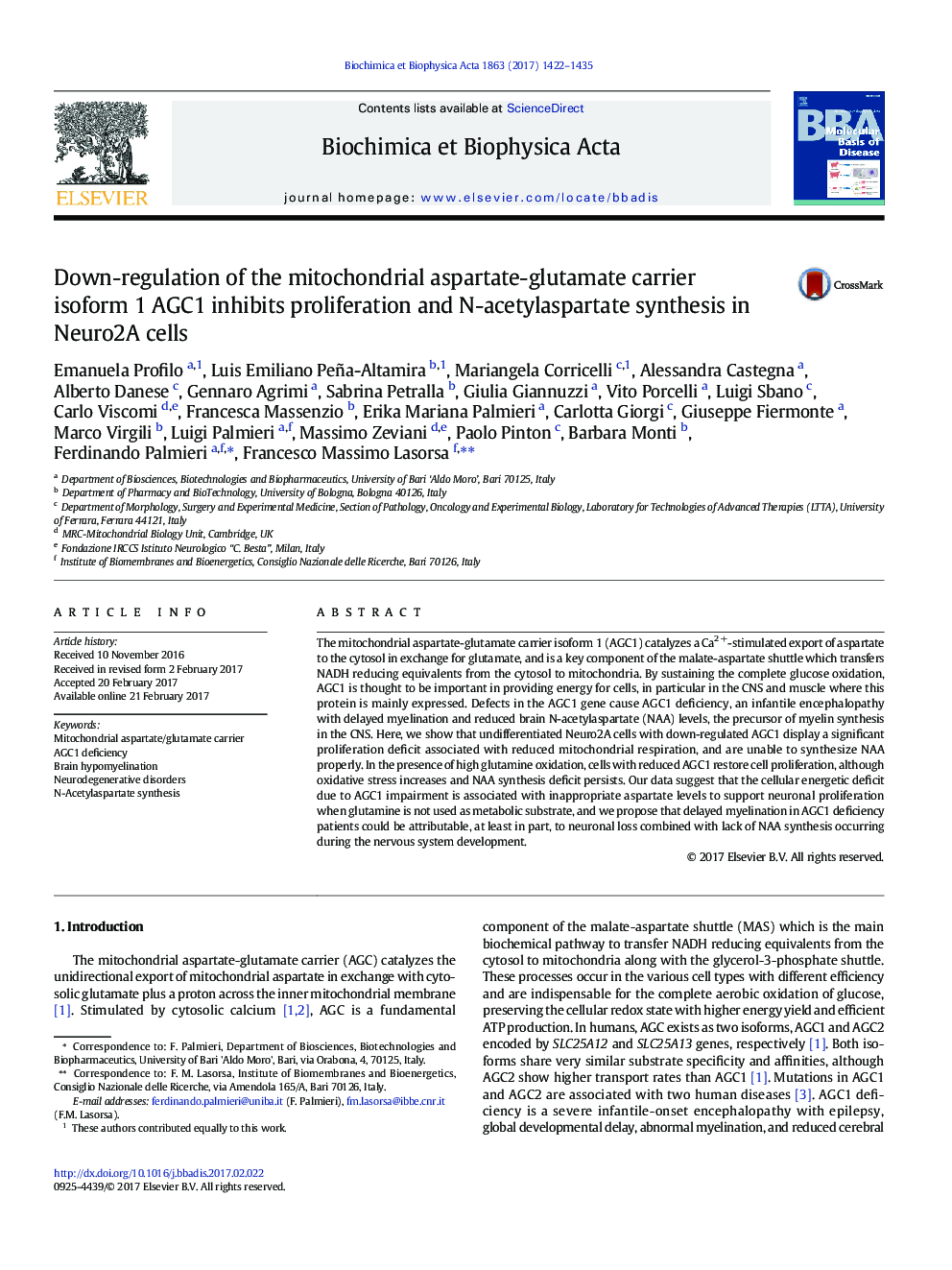| Article ID | Journal | Published Year | Pages | File Type |
|---|---|---|---|---|
| 5501045 | Biochimica et Biophysica Acta (BBA) - Molecular Basis of Disease | 2017 | 14 Pages |
â¢AGC1 is essential for the proliferation of undifferentiated N2A cells.â¢NAA deficit in AGC1-silenced N2A cells may lie on low aspartate and acetyl-CoA production.â¢Glutamine oxidation restores proliferation, but not NAA levels in AGC1-silenced N2A cells.
The mitochondrial aspartate-glutamate carrier isoform 1 (AGC1) catalyzes a Ca2Â +-stimulated export of aspartate to the cytosol in exchange for glutamate, and is a key component of the malate-aspartate shuttle which transfers NADH reducing equivalents from the cytosol to mitochondria. By sustaining the complete glucose oxidation, AGC1 is thought to be important in providing energy for cells, in particular in the CNS and muscle where this protein is mainly expressed. Defects in the AGC1 gene cause AGC1 deficiency, an infantile encephalopathy with delayed myelination and reduced brain N-acetylaspartate (NAA) levels, the precursor of myelin synthesis in the CNS. Here, we show that undifferentiated Neuro2A cells with down-regulated AGC1 display a significant proliferation deficit associated with reduced mitochondrial respiration, and are unable to synthesize NAA properly. In the presence of high glutamine oxidation, cells with reduced AGC1 restore cell proliferation, although oxidative stress increases and NAA synthesis deficit persists. Our data suggest that the cellular energetic deficit due to AGC1 impairment is associated with inappropriate aspartate levels to support neuronal proliferation when glutamine is not used as metabolic substrate, and we propose that delayed myelination in AGC1 deficiency patients could be attributable, at least in part, to neuronal loss combined with lack of NAA synthesis occurring during the nervous system development.
